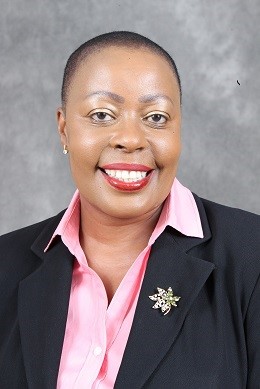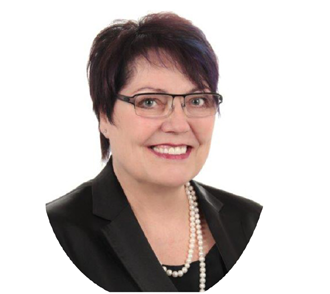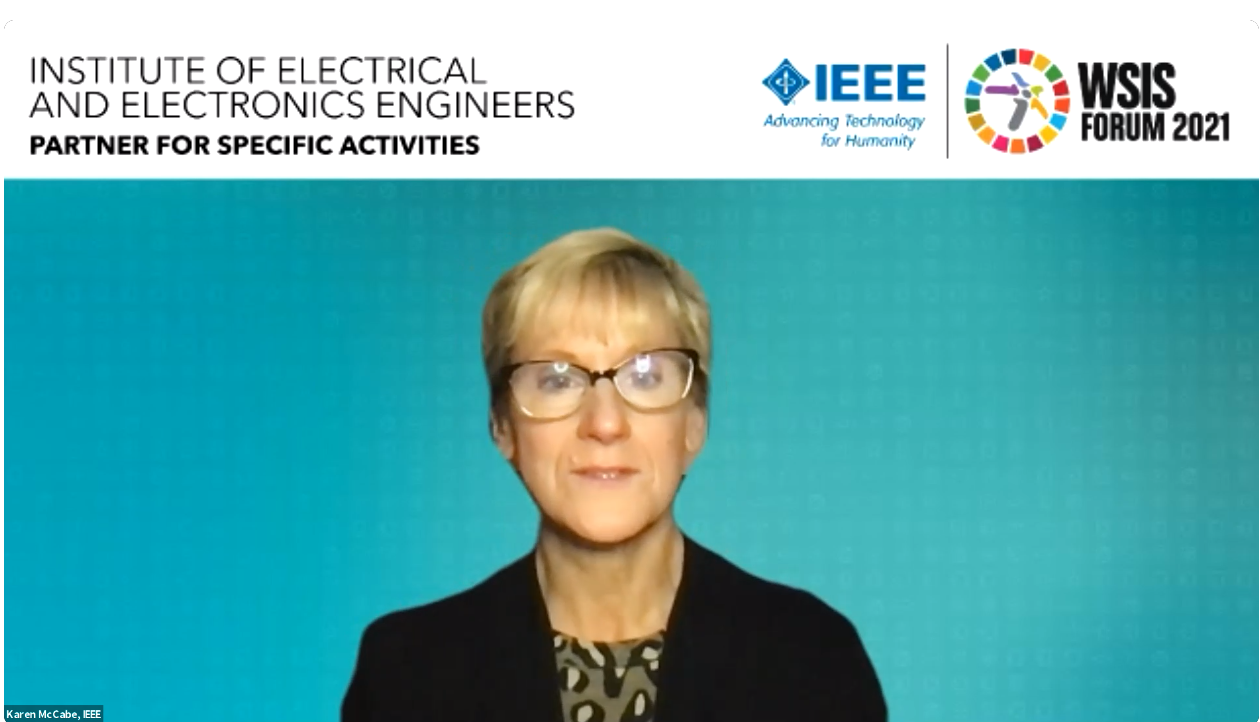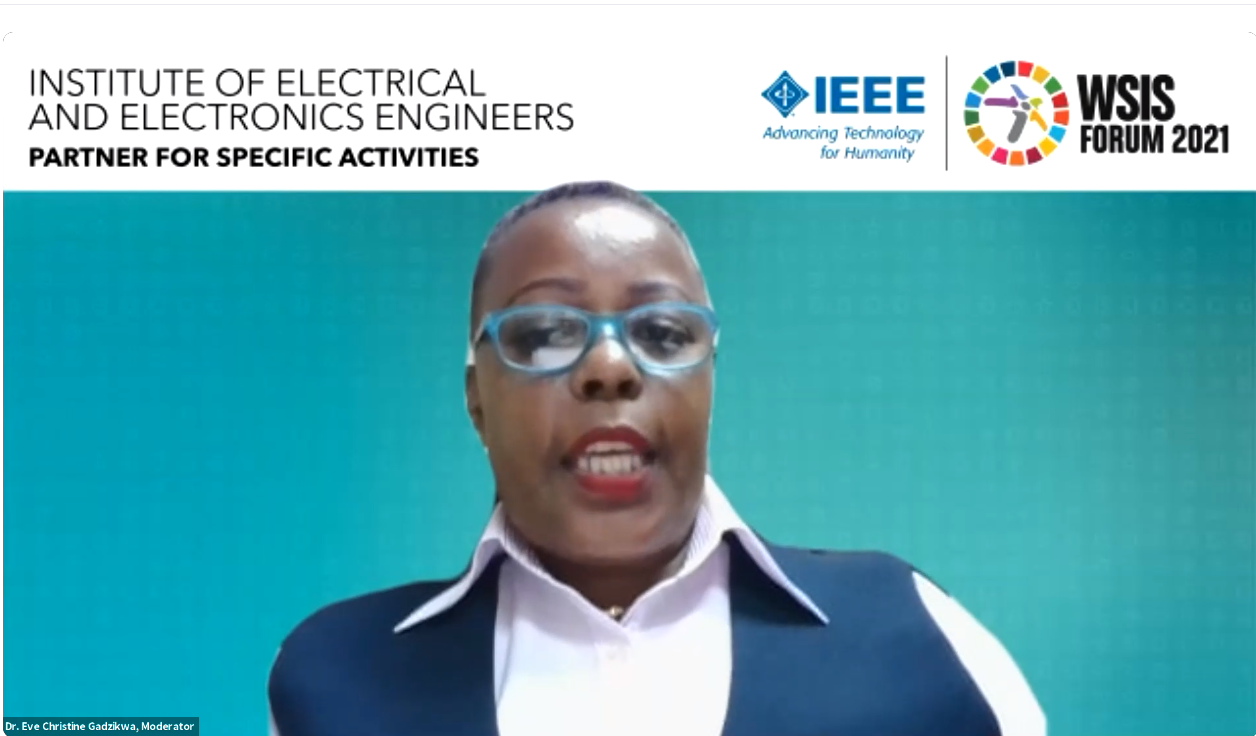ICTs and Smart Energy: Accelerating the use of ICTs for sustainability
Institute of Electrical and Electronics Engineers (IEEE)
Session 262
Digital innovation has produced groundbreaking technologies that can help propel us toward the achievement of the Sustainable Development Goals. Information Communication Technologies (ICTs), in particular, act as powerful catalysts in the three domains of sustainable development--economic development, social inclusion and environmental protection. ICTs enable all manner of digital solutions like smart agriculture, smart buildings, smart mobility, smart manufacturing, and smart conservation, among many others.
These smart solutions need electricity to function, however, and realizing their full impact in achieving the SDGs can be impeded by lack of access to clean, affordable and sustainable energy.
The world faces many challenges with respect to ICTs and energy:
- How to underpin ambitious sustainability goals while at the same time reducing carbon emissions?
- How to incorporate reliable renewable energy solutions in an affordable way?
- How to accelerate energy solutions and energy transition?
- How to increase the share of renewable energy in the global energy mix?
- How to increase access in developing countries and beyond? Could distributed power sources and the use of Direct Current help?
- How to approach mushrooming data storage needs and the resultant energy demands?
- How to address electronic waste recycling difficulties while new devices proliferate?
Smart energy, with its focus on affordable, sustainable, and renewable energy resources, forms an important part of effective ICT-powered solutions. Smart energy helps improve energy efficiency and access to affordable and safe energy, and it supports an increase in the share of renewable energies in the energy mix.
This workshop will focus on practical solutions for sustainable energy to help enable access to sustainable ICTs. Experts will share real-world experiences and solutions, and address the question of how to leverage smart resilient energy solutions to enable ICT for sustainable development.

Eve is the Past President of African Organisation for Standardisation (ARSO) headquartered in Nairobi, Kenya (2016-2019). As ARSO Champion for Eastern and Southern Africa and Chairman of the Africa Standardisation Strategy & Road Map for Africa 4th Industrial Revolution (A4IR) that is being spearheaded by the AU continental standardisation body ARSO in partnership with IEEE-SA (USA), Eve actively promotes global best practices, business excellence and standardisation of developing countries under the AfCFTA single market. As a member of ISO DEVCO Chairman’s Advisory group, Dr Gadzikwa has enjoyed an illustrious professional career, which spans over 25 years in the public and private sectors. Eve was appointed to her current executive position as Director General and Board Company Secretary for the Standards Association of Zimbabwe in September 2008. During her tenure at the helm of SAZ, Eve has continued to gain extensive industry experience and leads a diverse team of professionals. Over the past 11 years, Eve has represented her organisation with distinction on national, regional and international platforms to engender brand excellence. Eve has established broad contacts in government and business community to champion excellence in Standards, good Governance and Business Ethics. Eve is a qualified and experienced medical laboratory scientist (Bacteriologist) and is the past Chairman of Zimbabwe Stock Exchange (ZSE) and Institute of Zimbabwe (IoDZ). Eve was elected onto ISO Council in 2020 for period 2021-2023. Eve was appointed as a member of the IEEE SA Strategic and Emerging Standards Committee (SESCom) for calendar year 2021.

Dr. Julio Romero Agüero, Vice President, Strategy & Business Innovation & Executive Advisor, Quanta Technology Expert. Dr. Romero Agüero has over 20 years of experience working with electric utilities and regulatory boards. He has developed solutions for numerous electric utilities in the USA, Canada, Latin America, The Caribbean and Asia. His experience includes full P&L responsibility, business and technical leadership of utility and consulting projects in the areas of technology strategy, emerging technologies, innovation, planning, reliability, regulation, operations, engineering, asset management, Smart Grid, automation, renewable energy, integration of distributed energy resources (distributed generation, distributed energy storage, microgrids) and plug-in electric vehicles.
Dr. Romero Agüero is former Commissioner of the National Energy Commission of Honduras, Chair of the IEEE Distribution Subcommittee, Chair of the IEEE Working Group on Distributed Resources Integration, Editor of IEEE Transactions on Smart Grid, Editor of IEEE Transactions on Power Delivery, Member of the Advisory Committee of DistribuTECH, and Senior Member of the IEEE. He is the author of over 60 technical papers and presentations, and is a frequent speaker and instructor in industry events and training courses.

Rajesh Kunnath is a seasoned hardware engineer with more than two decades of experience spanning a wide array of electronics specialities from RF design to power supply design. He is the founder of a design services firm based in Chennai India that offers board design services and product design services in electronics.
Rajesh Kunnath is an IEEE standards expert as well as an IEC standards expert. He is a passionate advocate of LVDC (Low Voltage DC). He is part of the Indian National Committee - ETD50 of the Bureau of Indian Standards where he was involved in the drafting of an Indian Standard "Guidelines for 48V distribution" for the Bureau of Indian Standards. He is the Secretary of the IEEE P2030.10.1 Working Group for the creation of a standard for Electricity Access with a 48V DC supply. He is also part of an IEC Systems Committee SyC LVDC and is participating in Working Group 1 which is also focused on the development of standards for low-voltage electricity access.

Maike Luiken, PhD, SMIEEE, IEEE-HKN, is 2021 IEEE Vice President – Member & Geographic Activities. She served as President of IEEE Canada in 2018 - 2019 and, in 2018, as Chair, Policy Track, IEEE Internet Initiative. Currently Adjunct Research Professor at Western University, she was the founding Director of the Bluewater Technology Access Centre (now called Lambton Manufacturing Innovation Centre) following eight years as Dean at Lambton College with a number of portfolios: School of Technology and Applied Sciences, Business Development, Sustainable Development and Applied Research. Her strategic leadership in the development of the applied research & innovation capacity and portfolio led to Lambton College becoming one of the top Research Colleges in Canada.
Her areas of interest and expertise span diverse technical areas from ICT, energy and water to advanced manufacturing and nanotechnologies as well as technology design principles, ethics in design and policy associated with their implementation. She has particular interest in how progress in one area, e.g. in ICT, enables advances in other disciplines and in how deployment of various technologies contributes – or not - to achieving sustainable development.
Maike Luiken has experience in the public and private sectors in Canada and has worked in the USA and Germany. She owns a technology consulting practice and is a co-owner of a start-up company.
-
 C2. Information and communication infrastructure
C2. Information and communication infrastructure
-
 C3. Access to information and knowledge
C3. Access to information and knowledge
-
 C7. ICT applications: benefits in all aspects of life — E-government
C7. ICT applications: benefits in all aspects of life — E-government
-
 C7. ICT applications: benefits in all aspects of life — E-business
C7. ICT applications: benefits in all aspects of life — E-business
-
 C7. ICT applications: benefits in all aspects of life — E-learning
C7. ICT applications: benefits in all aspects of life — E-learning
-
 C7. ICT applications: benefits in all aspects of life — E-health
C7. ICT applications: benefits in all aspects of life — E-health
-
 C7. ICT applications: benefits in all aspects of life — E-employment
C7. ICT applications: benefits in all aspects of life — E-employment
-
 C7. ICT applications: benefits in all aspects of life — E-environment
C7. ICT applications: benefits in all aspects of life — E-environment
-
 C7. ICT applications: benefits in all aspects of life — E-agriculture
C7. ICT applications: benefits in all aspects of life — E-agriculture
-
 C7. ICT applications: benefits in all aspects of life — E-science
C7. ICT applications: benefits in all aspects of life — E-science
This workshop touches on three of the WSIS Action Lines:
2) Information and communication infrastructure
3) Access to information and knowledge
7) ICT applications: benefits in all aspects of life
WSIS Action Line 2) Information and communication infrastructure is an essential foundation for an inclusive information society, and sustainable energy systems enable inclusive access to ICTs. Distributed power sources and the use of Direct Current can help make the use of ICTs a possibility for more people. For example, mesh power supplies can bring energy into remote and marginalized areas, enabling Internet connectivity. Increased Internet connectivity meshes with WSIS Action Line 3) Access to information and knowledge. Overall, the technologies discussed by the panel enable more communities to access information and knowledge via the Internet. This information has the potential to benefit many aspects of life (WSIS Action Line 7) -- Disaster recovery, E-applications, E-agriculture, E-business, E-commerce, E-employment, E-environment, E-government, E-health, E-publishing, E-science, ICT waste disposal, Sustainable production and consumption, Teleworking, Transparency, presenting many opportunities for people around the world.
-
 Goal 7: Ensure access to affordable, reliable, sustainable and modern energy for all
Goal 7: Ensure access to affordable, reliable, sustainable and modern energy for all
-
 Goal 13: Take urgent action to combat climate change and its impacts
Goal 13: Take urgent action to combat climate change and its impacts
Several SDGs come into play in this conversation about ICTs and energy. SDG 7: Ensure access to affordable, reliable, sustainable and modern energy for all of course stands out. Renewable energy and distributed energy resources integration (distributed generation, distributed energy storage, microgrids) are two parts of the discussion on the energy supply side. Renewables directly relate to Target 7.2 of the SDG, “By 2030, increase substantially the share of renewable energy in the global energy mix.” Distributed energy resources integration supports Target 7.1 “By 2030, ensure universal access to affordable, reliable and modern energy services.” They can facilitate cleaner energy and better access, respectively. Meanwhile, devices can be made to use less energy and be part of a circular economy on the consumer side. These aspects relate to both access and sustainability of energy.
Also pertinent is SDG 13: Take urgent action to combat climate change and its impacts. Exploring the energy conservation potential of clean, renewable energy sources and how to connect them to the grid will help to combat climate change. As well, attention to the circular economy and how we produce and recycle hardware can have a positive impact.
Official webpage: https://www.standards.ieee.org
Twitter: https://twitter.com/IEEESA
Facebook: https://www.facebook.com/ieeesa/
LinkedIn: https://www.linkedin.com/company/ieee-sa-ieee-standards-association/





